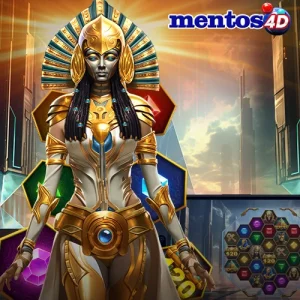In the vast expanse of the digital landscape, few phenomena have captivated and connected people across the globe like online gaming. From the early days of text-based adventures to the immersive virtual worlds of today, online gaming has undergone a remarkable evolution, shaping both the way we play and the world we live in.
A Brief History
Online gaming traces its roots back to the late 1970s and early 1980s with mentos4d slot primitive networked games like MUDs (Multi-User Dungeons) and early multiplayer titles such as Maze War. These humble beginnings laid the foundation for what would become a cultural juggernaut.
The 1990s saw the emergence of the internet and the proliferation of online gaming communities. Games like Doom and Quake popularized multiplayer gaming over LAN connections, setting the stage for the massive online worlds to come.
With the new millennium came the rise of MMORPGs (Massively Multiplayer Online Role-Playing Games) like EverQuest and World of Warcraft, where millions of players could inhabit vast virtual realms, forging friendships, battling monsters, and embarking on epic quests.
The Digital Playground
Online gaming is no longer confined to the realm of dedicated gaming consoles or PCs. The advent of smartphones and tablets has democratized gaming, allowing anyone with a mobile device to access a wealth of gaming experiences at their fingertips.
Social media platforms have also become integral to the online gaming experience, enabling players to connect, share, and collaborate with friends and strangers alike. Streaming services like Twitch have transformed gaming into a spectator sport, with millions tuning in to watch their favorite players compete in real-time.
The Impact
The influence of online gaming extends far beyond entertainment. Studies have shown that gaming can improve cognitive abilities such as problem-solving and spatial awareness, as well as fostering social connections and teamwork skills.
However, like any form of technology, online gaming also poses challenges. Concerns have been raised about issues such as gaming addiction, cyberbullying, and online harassment. Developers and communities alike must work together to create safe and inclusive spaces for players of all backgrounds.
The Future
As technology continues to advance, the future of online gaming holds boundless possibilities. Virtual reality promises to immerse players in worlds more vivid and lifelike than ever before, while augmented reality could blur the lines between the digital and physical realms.
Emerging technologies such as blockchain and NFTs (Non-Fungible Tokens) have the potential to revolutionize the gaming industry, offering new ways for players to own, trade, and monetize in-game assets.
Conclusion
Online gaming has come a long way since its humble beginnings, evolving into a global phenomenon that transcends borders and cultures. From the camaraderie of multiplayer battles to the endless exploration of virtual worlds, online gaming has become a fundamental part of the human experience in the digital age. As we embark on the next chapter of this digital odyssey, one thing is certain: the journey is far from over.